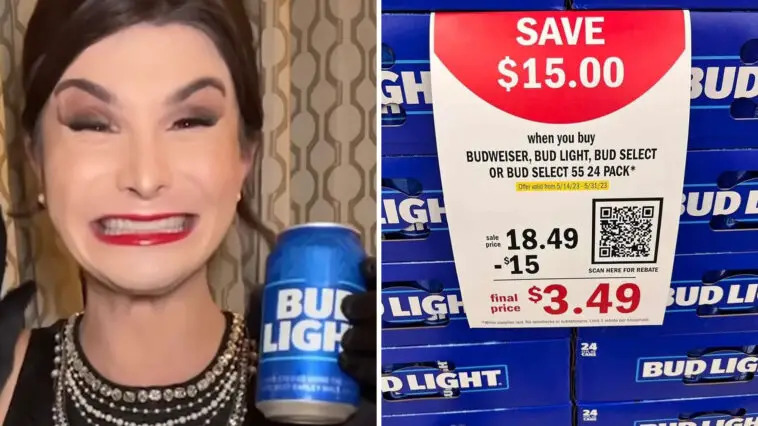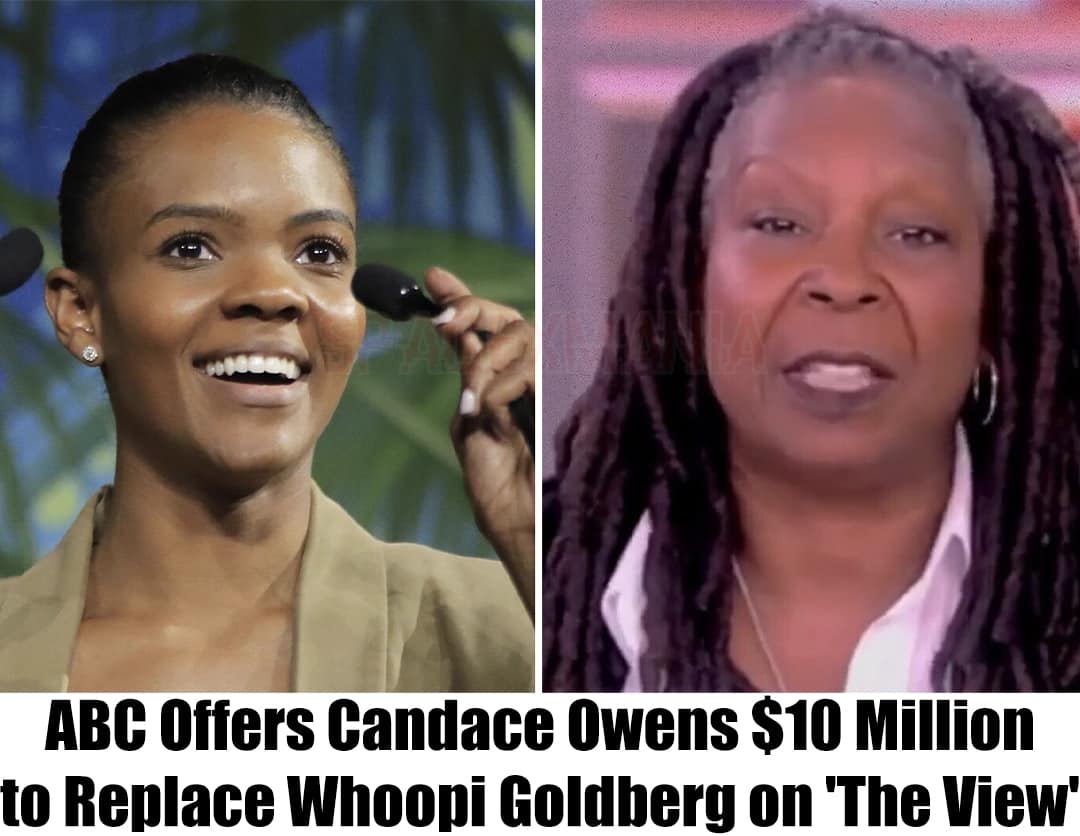Anheuser-Busch Faces $16 Billion Blowback Thanks To Dylan Mulvaney

The multinational brewer, Anheuser-Busch, has undergone a substantial downturn in its market stature since the start of the second quarter of the year. This can largely be traced back to a consumer-led embargo sparked by a contentious campaign that spotlighted transgender personality, Dylan Mulvaney, during the celebrated NCAA March Madness event.
Bud Light, a flagship brand under Anheuser-Busch, has observed a precipitous slump in its patronage, subsequently causing a drastic reduction of approximately $15.7 billion in the total worth of its parent entity, Anheuser-Busch InBev. This distressing trend has resulted in an 11.9% dip in the organization’s shares since the beginning of April, leading to some apprehension regarding its forthcoming path.
Jared Dinges, an expert in beverage trends from JPMorgan Chase, disclosed that Bud Light’s sales have nosedived by an astonishing 23% since the week that ended on May 6. The origin of this decrease is widely considered to be the swift reprisal against the controversial campaign, with more conservative patrons championing the embargo on the popular beer. In a communique to clients, Dinges referred to the NielsenIQ data supporting these findings.
“We’re convinced that a certain demographic of American beer enthusiasts may refrain from purchasing Bud Light for the time being,” he stated. “An annualized volume decrease in the realm of 12% to 13% appears to be a plausible estimate.”
Mulvaney, a transgender influencer recognized for his TikTok series “Days of Girlhood”, which captured his gender transition journey, was employed as part of Anheuser-Busch’s strategy to reverse the dwindling Bud Light sales and entice a younger demographic.
His endorsement of Bud Light during the NCAA March Madness event, encapsulated in a video published on April 1, 2023, invoked considerable opposition from the brand’s consumers, thereby inciting calls to boycott not just Bud Light but also Anheuser-Busch as a collective enterprise.
Recently, journalist Rita Panahi castigated Bud Light for its “ill-advised corporate grandstanding.” The continuous consumer resistance Bud Light faces after integrating sociopolitical activism into its brand image, deemed as inauthentic and politically charged by many, is still evident.
Panahi emphasized the severe financial repercussions for the parent company. What is now referred to as the “Bud Light crisis” is believed to be the most influential conservative embargo in contemporary times, enduring in spite of protests from prominent conservative figures.
In the wake of the crisis, HSBC demoted Anheuser-Busch, the umbrella company for Bud Light. Michel Doukeris, CEO of Anheuser-Busch, ascribed the sales decline to misunderstandings emerging from a singular social media post featuring the transgender influencer. This incident stands as a warning for corporations adopting political activism, laying bare the potential hazards of distancing their consumer base.
Amid all this, Bud Light has introduced an appealing price point of $3.49 in a likely bid to regain consumer trust and drive sales. This strategy could attract value-conscious beer enthusiasts who appreciate the brand’s consistency and quality. This new price emphasizes Bud Light’s commitment to providing an affordable and quality brew to its consumers, suggesting a strategic move to appeal to its diverse and expansive customer base.
This latest price tag seems to be a calculated move, possibly a reaction to the recent turbulence. By setting the price at $3.49, Bud Light appears to be employing a competitive pricing strategy to increase sales volume and potentially rekindle its relationship with disenchanted consumers.
Even as the controversial campaign’s aftershocks continue to impact the brand, Bud Light, with its rich history and universal appeal, seems determined to weather the storm. The company’s ability to bounce back will depend significantly on how effectively it can reassess its marketing strategies, respond to consumer sentiment, and restore its public image.
The Bud Light episode presents a timely reminder to corporations worldwide about the power of consumers and the potential repercussions of incautious marketing strategies. Companies need to strike a balance between their brand values, consumer expectations, and the socio-political environment.
Despite the turbulence, Bud Light has stayed true to its identity – a reliable provider of quality brew. Now selling for $3.49, the brand aims to maintain its value proposition while responding dynamically to market forces. Only time will tell how successful this approach will be in reclaiming Bud Light’s former market standing and consumer confidence.
Whether or not you agree with their recent marketing endeavors, one cannot deny the resilience of Bud Light. As we navigate through these changing times, it’s enlightening to see how brands adapt, evolve, and respond to the world around them. Bud Light’s journey offers a vivid illustration of this process, demonstrating that even in the face of adversity, there is always room for growth and transformation.



Leave a Comment